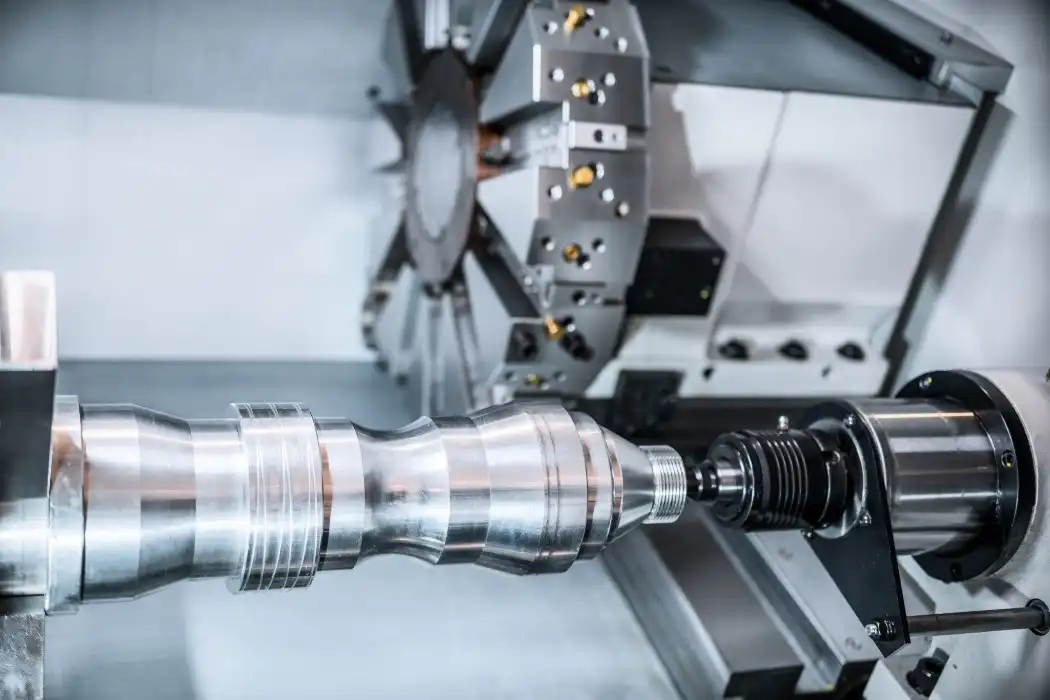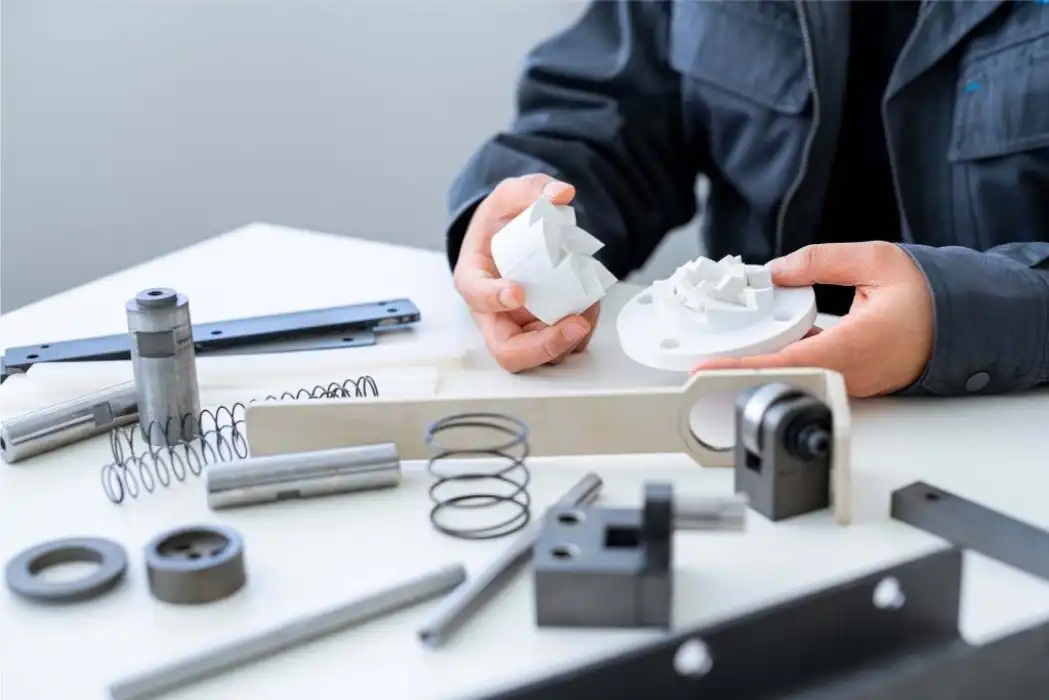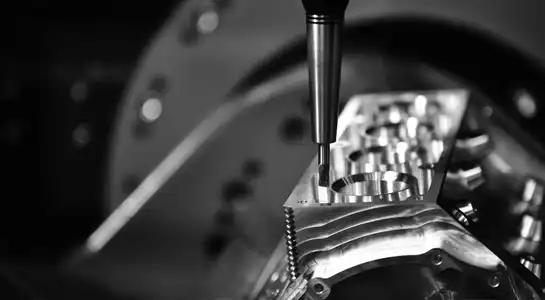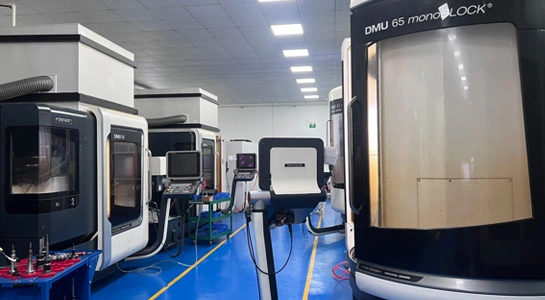Fast CNC Quotes: What Small Businesses Need to Know
For small businesses venturing into CNC machining, obtaining quick and accurate quotes is crucial. Fast CNC quotes empower entrepreneurs to make informed decisions, manage costs effectively, and streamline their production processes. By understanding the key factors that influence CNC machining quotes - such as material selection, design complexity, and production volume - small businesses can optimize their approach to secure competitive pricing. This guide explores the essentials of fast CNC quotes, offering insights to help you navigate the quoting process efficiently and make the most of CNC technology for your small business needs.
Understanding the CNC Quoting Process
Key Factors Influencing CNC Quotes
Metal prototyping, especially when utilizing CNC machining, is highly effective in producing parts with extremely tight tolerances and superior surface finishes. This level of precision is essential for applications where exact dimensions directly impact performance, such as aerospace components that may require tolerances of only a few microns. Achieving smooth, consistent surfaces also enhances assembly compatibility and reduces the need for additional finishing processes. By delivering this accuracy, metal prototypes help ensure that the final production parts meet the strictest industry standards.
Preparing Your Design for Quoting
Cutting-edge metal prototyping methods, including additive manufacturing, make it possible to produce intricate geometries that traditional manufacturing techniques struggle to achieve. Engineers can design complex internal channels, lattice structures, and optimized shapes that improve performance while reducing weight. Such capabilities enable advanced design strategies like topology optimization, allowing products to be both lighter and stronger. This design freedom not only enhances functionality but also accelerates innovation by giving manufacturers the tools to push beyond conventional engineering limitations.

Leveraging Online Quoting Systems
Metal prototyping offers a broad selection of materials, including aluminum, stainless steel, titanium, and specialized alloys, each with unique properties suited to different applications. Designers can select materials based on factors such as weight, corrosion resistance, or tensile strength, ensuring prototypes accurately reflect the final product’s performance. For instance, lightweight aluminum might be ideal for electronics housings, while titanium could serve high-stress aerospace components. Using the same material in prototyping as in production ensures realistic testing, smoother production scaling, and greater confidence in design validation.
Optimizing Your Design for Cost-Effective CNC Machining
Simplifying Geometries
Complex geometries often require additional machining time and specialized tools, driving up costs. Where possible, simplify your design by avoiding intricate details or deep pockets that necessitate long-reach tooling. Opt for standard hole sizes and thread types to minimize the need for custom tooling. These adjustments can significantly reduce machining time and overall expenses.
Material Selection Strategies
Choosing the right material is crucial for both functionality and cost-effectiveness. While metals like aluminum offer excellent strength-to-weight ratios, plastics like ABS or POM might suffice for certain applications at a lower cost. Consider the end-use requirements of your part and explore alternative materials that meet your needs without breaking the bank. Consulting with your CNC machining partner can provide valuable insights into material selection.
Designing for Manufacturability
Incorporate design for manufacturability (DFM) principles to enhance your part's machinability. Features like uniform wall thicknesses, avoiding sharp internal corners, and minimizing the number of setups required can significantly reduce machining time and costs. By designing with manufacturing constraints in mind, you'll not only receive more competitive quotes but also ensure smoother production processes.

Maximizing Value in CNC Machining Services
Balancing Quality and Cost
While cost is a crucial factor for small businesses, it shouldn't come at the expense of quality. Evaluate CNC machining services based on their ability to meet your specifications and deliver consistent results. Sometimes, investing in higher-quality machining can lead to long-term savings by reducing the need for rework or replacements. Consider the total cost of ownership when comparing quotes from different providers.
Exploring Finishing Options
Surface finishes can significantly impact both the appearance and functionality of your CNC machined parts. From as-machined finishes to powder coating or chrome plating, each option offers unique benefits and costs. Discuss your requirements with potential suppliers to find the most cost-effective finishing solution that meets your needs. Remember, some finishes may affect tolerances or material properties, so factor these considerations into your decision-making process.
Leveraging Prototyping Services
Before committing to a large production run, consider utilizing prototyping services. Many CNC machining providers offer rapid prototyping options that allow you to validate your design and material choices. This approach can help identify potential issues early in the development process, saving time and resources in the long run. Prototypes also provide tangible samples for stakeholder approval or marketing purposes, adding value beyond mere production considerations.

Conclusion
Navigating the world of fast CNC quotes doesn't have to be daunting for small businesses. By understanding the key factors influencing quotes, optimizing designs for manufacturability, and leveraging the right services, you can secure competitive pricing and high-quality results. Remember to balance cost considerations with quality requirements, and don't hesitate to communicate openly with your CNC machining partner. With these insights, you're well-equipped to make informed decisions and harness the full potential of CNC machining for your small business needs.
FAQs
How long does it typically take to receive a CNC machining quote?
Turnaround times vary, but many providers offer instant online quotes for simple parts. Complex designs may require 24-48 hours for a detailed quote.
Can I request multiple material options in a single quote?
Yes, most CNC machining services allow you to compare quotes for different materials simultaneously, helping you make cost-effective decisions.
Are there minimum order quantities for CNC machining services?
While some providers have minimum order requirements, many cater to small businesses with low-volume or even single-part orders. Be sure to clarify this with potential suppliers.
Fast CNC Quotes: Empowering Small Businesses with Precision Manufacturing | BOEN
At BOEN, we specialize in delivering fast, accurate CNC quotes tailored to small business needs. Our expertise in prototypes and low-volume production across various materials ensures competitive pricing and exceptional quality. From automotive parts to medical devices, our advanced CNC machining capabilities cater to diverse industries. Experience the BOEN difference in rapid, reliable manufacturing solutions. Contact us at contact@boenrapid.com to explore how we can elevate your production processes.
References
Smith, J. (2023). CNC Machining for Small Businesses: A Comprehensive Guide. Journal of Manufacturing Technology, 45(2), 112-128.
Johnson, A. et al. (2022). Optimizing CNC Machining Processes: Strategies for Cost Reduction. International Journal of Industrial Engineering, 18(4), 305-320.
Brown, M. (2023). Material Selection in CNC Machining: Balancing Performance and Cost. Advanced Materials and Processes, 181(3), 22-29.
Lee, S. & Park, K. (2022). Design for Manufacturability in CNC Machining: Best Practices and Case Studies. Journal of Engineering Design, 33(5), 178-195.
Wilson, R. (2023). The Impact of Surface Finishes on CNC Machined Parts: A Comparative Analysis. Surface and Coatings Technology, 442, 128-140.
Thompson, E. (2022). Rapid Prototyping in Small Business: Leveraging CNC Technology for Innovation. Small Business Economics, 59(2), 401-417.

How Can We Help?

Your Trusted Partner in Rapid Manufacturing.



